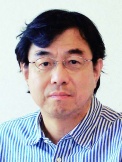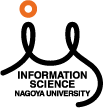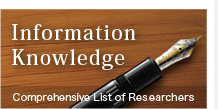Comprehensive List of Researchers "Information Knowledge"
Department of Computer Science and Mathematical Informatics
- Name
- OZAWA, Masanao
- Group
- Mathematical Modeling and Analysis Group
- Title
- Designated Professor
- Degree
- Dr. of Science
- Research Field
- Mathematical Physics / Mathematical Logic / Philosophy of Science / Quantum Information / Quantum Computing / Quantum Measurement / Quantum Set Theory / Quantum Foundations

Current Research
Quantum Information
OVERVIEW. Every process for information transmission and information processing is subject to the laws of physics. Although conventional information systems can be well described by classical physics, Moore's law, an empirical law on the evolution of information technology, suggests the need for information systems based on quantum physics in the near future. Quantum mechanics revealed that our capability of measuring and recognizing physical properties is limited by the uncertainty principle. Half a century later, the discovery of the laser in the early 1960's enabled us to control uncertain quantum states and to develop information technology using them. Recently, by taking advantage of quantum information, we are opening the possibility of quantum information technology such as hyper-fast quantum computers and unconditionally secure quantum cryptography. My principal aim of the current research activity is to construct a mathematical theory of quantum information, which provides mathematical foundations of quantum information and leads to practical applications to quantum information technology. The following are some of our research activities on several topics with several collaborators.QUANTUM MEASUREMENTS. The theory of quantum measurements is the most fundamental theory that lays the foundations of every area of quantum information research. One of the fundamental problems since von Neumann's pioneering work in 1932 is to mathematically characterize the notion of measurements. In a paper published in 1984 I solved this problem by showing that the notion of measurements is perfectly characterized by completely positive map valued measures (a mathematical notion called instruments). In 1988 based on the theory of instruments I examined the controversy about the limit on gravitational wave detection between Yuen and Caves, and settled the controversy by constructing a model of measurement breaking the standard quantum limit set by Braginsky and Caves (reported in News and Views in Nature 331, 559 (1988)). This research suggested that the inequality on measurement error and disturbance proposed by Heisenberg in 1927 is not universally valid. In 2003 I presented a universally valid inequality for measurement error and disturbance (the universal uncertainty principle). Using this inequality I also found an inequality representing the precision limit of measurements under conservation laws. Based on the above results, I am currently undertaking researches on the theory of quantum measurement, quantum information theory, and interpretation of quantum theory.
QUANTUM COMMUNICATION. Stimulated by the discovery of the laser, Gabor, Gordon, and others proposed a new formula for the channel capacity that modifies Shannon's classical capacity with quantum noise, based on the laws of quantum electromagnetic fields. However, a general proof of this formula remained unsettled. In the late 1970's I started research in quantum communication theory and contributed to the mathematical foundations of quantum detection theory. In 1993 Yuen and I gave the proof of the quantum channel capacity formula mentioned above, and led the later developments of the researches in quantum capacities for bosonic channels.
QUANTUM COMPUTING. In the 1980's Deutsch proposed two sorts of models of quantum computers, quantum Turing machines (QTMs) and quantum circuits (QCs). In 1994 Shor found a quantum algorithm for efficiently solving prime factoring, which may break current public key cryptosystems. In a paper published in 2002 Nishimura and I developed quantum complexity theory of uniform circuit families in which we gave a rigorous proof for the computational equivalence between QTMs and uniform quantum circuit families. On the other hand, in order to figure out physical limitations on the performance of quantum computers, I have developed a new theoretical method that leads to quantum limits on the accuracy of implementations of quantum gates induced by conservation laws, and I have obtained the quantum limits on the CNOT gate and the Hadamard gate. Based on these results, I am undertaking collaboration with Gea-Banacloche, Kawano, and Karasawa for researches in physical realizations of quantum computers and their limitations.
QUANTUM SET THEORY. I studied the applications of the methods of forcing developed in set theory to operator algebras in the 1980's, and affirmatively settled Kaplansky's conjecture on the structure of algebras of type I, posed in 1952. In a paper published in 2007, I developed quantum set theory based on the projection lattice of an arbitrary von Neumann algebra. I proved a transfer principle that systematically makes valid propositions in quantum set theory from theorems of ZFC, and showed that quantum observables correspond to real numbers in quantum set theory. This research showed that quantum set theory provides a useful tool for extending the current interpretation of quantum mechanics. For instance, the identity between values of observables has been a difficult notion to define, but it was shown that this notion is quite plausibly represented by the equality relation between real numbers defined in quantum set theory. Based on those results, I am undertaking the reconstruction of quantum mechanics by quantum set theory in order to establish a new interpretation of quantum mechanics.
Career
- 1979 : Dr. Sci. from Tokyo Institute of Technology
- 1986 -1995 : Associate Professor at Nagoya University
- 1989 -1990 : Visiting Scholar at Harvard University
- 1995 -2001, 2008 -present : Professor at Nagoya University
- 2001 -2008 : Professor at Tohoku University
Academic Societies
- Mathematical Society of Japan
- Japan Association for Philosophy of Science
- American Physical Society
Publications
- M. Ozawa, Quantum measuring processes of continuous observables, Journal of Mathematical Physics 25 (1984), 79 -87.
- M. Ozawa, Uncertainty relations for noise and disturbance in generalized quantum measurements, Annals of Physics 311 (2004), 350 -416.
- M. Ozawa, Transfer principle in quantum set theory, The Journal of Symbolic Logic 72 (2007), 625 -648.








